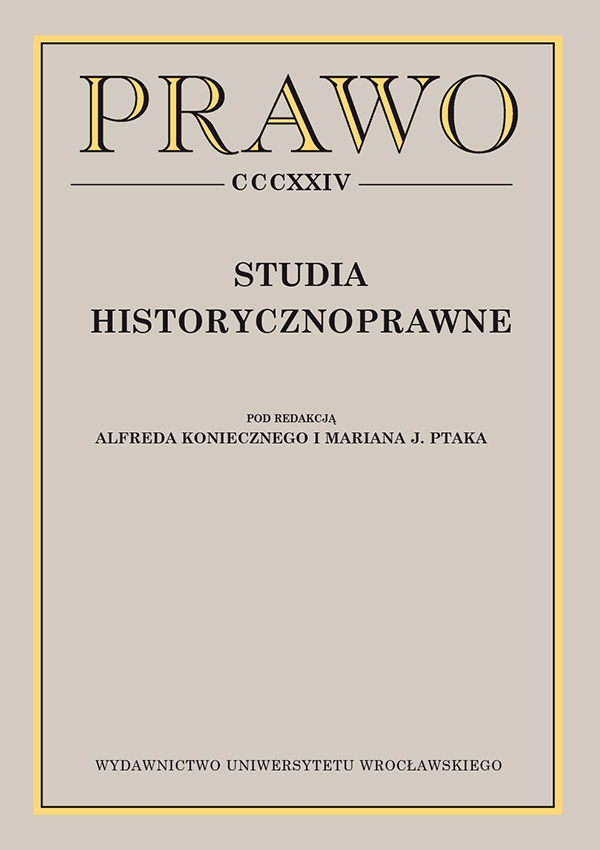

Articles

Selected aspects of testate succession in the light of the case-law of courts in the Lviv judicial district in the inter-war period
The author of the article presents selected issues of testate succession soundness of mind of the testator, formal requirements of a will and its witnesses, joint and privileged wills, revocation of a will and its invalidation provided for in the Austrian Civil Code ABGB and in force in the part of Poland annexed by Austria. The author’s analysis of the provisions applicable to the issues in question is further enhanced by references to the case-law of courts forming the Lviv judicial district, illustrating the complexity of the provisions. The case-law testifies to how big a role was played by testate succession in the part of Poland annexed by Austria. On the other hand, it shows how many people did not know the ABGB provisions and how differently the provisions were interpreted by the courts.
Ausgewählte Probleme der testamentarischen Erbfolge im Lichte der Rechtsprechung der Gerichte des Lemberger Berufungsbezirkes in der Zwischenkriegszeit
Der Verfasser stellt im Aufsatz ausgewählte Probleme betreffend die testamentarische Erbfolge vor Geistesgegenwart des Erblassers, formelle Anforderungen an Testamente und die Zeugen, gemeinsame und bevorzugte Testamente, Widerruf des Testaments und dessen Aufhebung, die im österreichischen Zivilgesetzbuch ABGB vorgesehen waren und im ehemaligen österreichischen Teilgebiet galten. Die Analyse der die erwähnten Probleme betreffenden Vorschriften erweitert er um die Rechtsprechung der Gerichte des Lemberger Berufungsbezirkes aus der Zwischenkriegszeit und zeigt dabei ihre Kompliziertheit im alltäglichen Leben. Diese Beschlüsse zeugen davon, welch eine große Rolle die testamentarische Erbfolge im ehemaligen österreichischen Teilgebiet spielte. Andererseits sind sie ein Beweis, dass viele Personen die Vorschriften des ABGB nicht kannten und dass seine Vorschriften durch die Gerichte unterschiedlich ausgelegt waren.